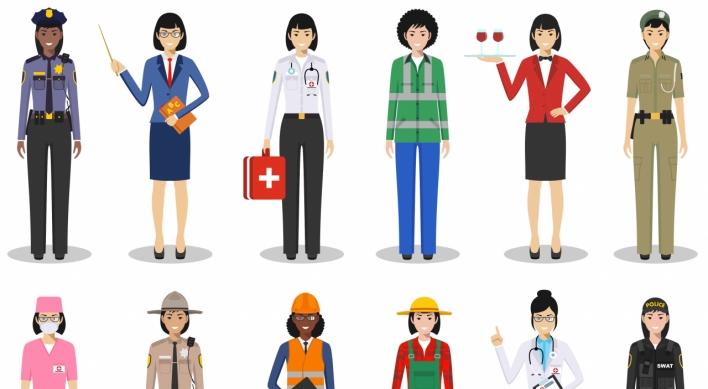China is poisoning its own people and making no apparent effort to stop this.
 Most people know about the unprecedented air pollution in major Chinese cities. For months, photos of Beijing and other cities obscured by the gray-brown muck have been on the front pages of newspapers worldwide.
Most people know about the unprecedented air pollution in major Chinese cities. For months, photos of Beijing and other cities obscured by the gray-brown muck have been on the front pages of newspapers worldwide.
But even more serious problems are leading people to consume toxic rice and other foods, while also creating other shocking consequences ― like the 42 deaths and more than 1,500 serious injuries in Shaanxi province from hornet-swarm stings in recent weeks.
Xinhua, the Chinese government-run news agency, quoted academics who blamed the surge in mass hornet attacks on “ecological reasons.” Rapid urbanization, it seems, has driven away most of the birds and spiders that are the hornets’ natural enemies.
That’s a chilling example, but a far larger problem comes from industries that are being forced to relocate to rural areas, in an effort to reduce industrial pollution in China’s cities. But now these new factories are dumping copious, untreated industrial waste directly into ponds, streams and lakes from which farmers draw the water to irrigate their crops.
As a result, farmers end up growing crops they dare not eat.
A government survey in 2006 found that 10 percent of the nation’s arable land was hopelessly polluted with cadmium and other heavy metals that wreak serious health problems if consumed.
And then in 2008, Nanjing Agricultural University published a study that said 60 percent of the rice purchased in southern provincial markets was tainted with cadmium, an element that has largely gone out of use worldwide because of its toxicity ― though it’s still used to make rechargeable nickel-cadmium batteries. That’s an important Chinese industrial product.
Other studies, the Wall Street Journal reported, indicated that some of this rice was also tainted with arsenic and lead.
This year, the government concluded another land-pollution study. But when the results came in, the Ministry of Environmental Protection refused to make them public, calling the results “a state secret.”
That brought an angry outcry. Even the People’s Daily, the Communist Party’s flagship newspaper, posted a blog that said “covering this up only makes people think: I’m being lied to.”
Every country that has industrialized in the last half century has faced sudden new environmental problems. In the United States, the wake-up call came when Ohio’s Cuyahoga River, clotted with pollutants, caught fire in 1969 ― shocking the nation. Soon after, Congress created the Environmental Protection Agency and passed the Clean Water Act.
In 1998, China suffered a year of disastrous flooding. That prompted the government to upgrade a small environmental working group to a ministry-level agency. But one problem, among many, is that Beijing has serious difficulties persuading local businesses and governments to enforce its policies.
In the case of these polluting rural factories, most local governments don’t even have the manpower or expertise to regulate them, even if they are so inclined. But some factories are offering an accommodation. Now, some local farmers knowingly grow poisoned, stunted rice plants just to earn compensation from the factories for destroying their crops.
All of this is forcing changes in the already deeply troubled Chinese economy.
During China’s baby formula scandal of 2008, when several producers spiked the product with melamine to raise apparent protein levels, tens of thousands of babies suffered serious kidney damage. Since then, mothers have lost all trust in China’s manufacturers. Still today they visit Hong Kong and buy suitcases full of formula cans, leading to a citywide shortage for Hong Kong babies.
Now, all of a sudden, with the poison-rice scare ― rice, of course, is a staple of Asian diets ― thousands of Chinese are buying foreign rice, too. In fact, this year China made a deal to buy nearly 5 million tons of Thai rice ― a purchase so large that some members of the Thai opposition accused the government of faking the deal.
But Phaichit Viboontanasarn, the commercial attache at the Thai embassy in Beijing, told the Thai News Service: “We target to export 4-5 million tons of rice to China, where demand is high after” what he called “crop losses.” The Thai government “has instructed all units to speed up the sale of rice” to China.
China faces so many problems ― manifold social, financial, political and foreign-policy woes. But the continual poisoning of its own people should stand head and shoulders above all the others.
By Joel Brinkley
Joel Brinkley is the Hearst professional in residence at Stanford University and a Pulitzer Prize-winning former correspondent for The New York Times. ― Ed.
(MCT Information Services)
 Most people know about the unprecedented air pollution in major Chinese cities. For months, photos of Beijing and other cities obscured by the gray-brown muck have been on the front pages of newspapers worldwide.
Most people know about the unprecedented air pollution in major Chinese cities. For months, photos of Beijing and other cities obscured by the gray-brown muck have been on the front pages of newspapers worldwide.But even more serious problems are leading people to consume toxic rice and other foods, while also creating other shocking consequences ― like the 42 deaths and more than 1,500 serious injuries in Shaanxi province from hornet-swarm stings in recent weeks.
Xinhua, the Chinese government-run news agency, quoted academics who blamed the surge in mass hornet attacks on “ecological reasons.” Rapid urbanization, it seems, has driven away most of the birds and spiders that are the hornets’ natural enemies.
That’s a chilling example, but a far larger problem comes from industries that are being forced to relocate to rural areas, in an effort to reduce industrial pollution in China’s cities. But now these new factories are dumping copious, untreated industrial waste directly into ponds, streams and lakes from which farmers draw the water to irrigate their crops.
As a result, farmers end up growing crops they dare not eat.
A government survey in 2006 found that 10 percent of the nation’s arable land was hopelessly polluted with cadmium and other heavy metals that wreak serious health problems if consumed.
And then in 2008, Nanjing Agricultural University published a study that said 60 percent of the rice purchased in southern provincial markets was tainted with cadmium, an element that has largely gone out of use worldwide because of its toxicity ― though it’s still used to make rechargeable nickel-cadmium batteries. That’s an important Chinese industrial product.
Other studies, the Wall Street Journal reported, indicated that some of this rice was also tainted with arsenic and lead.
This year, the government concluded another land-pollution study. But when the results came in, the Ministry of Environmental Protection refused to make them public, calling the results “a state secret.”
That brought an angry outcry. Even the People’s Daily, the Communist Party’s flagship newspaper, posted a blog that said “covering this up only makes people think: I’m being lied to.”
Every country that has industrialized in the last half century has faced sudden new environmental problems. In the United States, the wake-up call came when Ohio’s Cuyahoga River, clotted with pollutants, caught fire in 1969 ― shocking the nation. Soon after, Congress created the Environmental Protection Agency and passed the Clean Water Act.
In 1998, China suffered a year of disastrous flooding. That prompted the government to upgrade a small environmental working group to a ministry-level agency. But one problem, among many, is that Beijing has serious difficulties persuading local businesses and governments to enforce its policies.
In the case of these polluting rural factories, most local governments don’t even have the manpower or expertise to regulate them, even if they are so inclined. But some factories are offering an accommodation. Now, some local farmers knowingly grow poisoned, stunted rice plants just to earn compensation from the factories for destroying their crops.
All of this is forcing changes in the already deeply troubled Chinese economy.
During China’s baby formula scandal of 2008, when several producers spiked the product with melamine to raise apparent protein levels, tens of thousands of babies suffered serious kidney damage. Since then, mothers have lost all trust in China’s manufacturers. Still today they visit Hong Kong and buy suitcases full of formula cans, leading to a citywide shortage for Hong Kong babies.
Now, all of a sudden, with the poison-rice scare ― rice, of course, is a staple of Asian diets ― thousands of Chinese are buying foreign rice, too. In fact, this year China made a deal to buy nearly 5 million tons of Thai rice ― a purchase so large that some members of the Thai opposition accused the government of faking the deal.
But Phaichit Viboontanasarn, the commercial attache at the Thai embassy in Beijing, told the Thai News Service: “We target to export 4-5 million tons of rice to China, where demand is high after” what he called “crop losses.” The Thai government “has instructed all units to speed up the sale of rice” to China.
China faces so many problems ― manifold social, financial, political and foreign-policy woes. But the continual poisoning of its own people should stand head and shoulders above all the others.
By Joel Brinkley
Joel Brinkley is the Hearst professional in residence at Stanford University and a Pulitzer Prize-winning former correspondent for The New York Times. ― Ed.
(MCT Information Services)








![[AtoZ Korean Mind] Does your job define who you are? Should it?](http://res.heraldm.com/phpwas/restmb_idxmake.php?idx=644&simg=/content/image/2024/05/06/20240506050099_0.jpg&u=)









